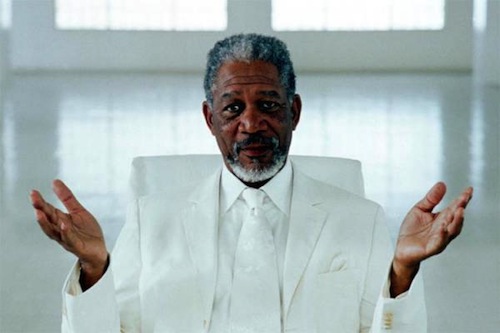The screenshot above is from an article in The Daily Currant, a satirical newspaper that has once again had one of its stories mistaken for fact, this time by a Maryland police chief who cited it in a presentation on the dangers of legalizing marijuana. Props to Jacek for the link. Annapolis police chief Michael Pristoop subsequently apologized for citing the story, adding, “This does not take away from the other facts presented in opposition to legalization or the good work of the Maryland Chiefs and Maryland Sheriffs Associations.” Actually, chief, it does. Your “good work” mistook a made-up thing for fact, and the other people in the room were, unlike you, immediately able to identify the thing as made-up. You should stop telling the people in that room what’s what. Pristoop can be forgiven for his mistake, however, as The Daily Currant continues to close the gap between “satire” and “false.”
Tag Archives: hoax
Internet hoax has Joel Osteen renouncing Christianity
This morning, the daemon Facebook brought me the news that Texas megachurch pastor Joel Osteen had resigned his position and renounced Christianity. The article also warned that people would try to tell me it was all a hoax. My suspicions were piqued by an interview in which Osteen uses pretty much the same diction and syntax as the interviewer, and they were confirmed by this ABC News report. ABC News is fairly reliable, even if they did say the hoax had him “telling his many followers he was denouncing [sic] the Christian faith.” Also, the problem of an unknown source that offers fantastic information while warning that people will try to tell you it’s a hoax should be familiar to anyone who has read the Bible.
Friday links! Naked villainy edition
One of the most depressing features of the modern world is the difficulty in identifying villains. Awful scumbags are out there, obviously, but they tend to be “controversial” rather than openly evil. Deteriorating certainty in both morals and reportage has made any given villain debatable. Where once we might say with confidence that Glenn Beck was a fat liar who cried to get attention, now we can only disagree with him. Personally, I miss the old certainty. It may have cost us a few witches, but to definitively call other people villains is a satisfying atavism, like eating chicken with your hands. Today is Friday, and we still have a few unequivocal villains left. Won’t you point the finger with me?
Friday links! All fake everything edition
As any teenager will tell you, everything is fake. News events, music, your parents’ love, X-Ray Specs: it’s all one big, cynical manipulation, and the only way to fight it is by not believing anything—in other words, with more cynicism. The cynic never looks stupid. The person who once believed and has been proven wrong is an idiot, but the skeptic who is eventually convinced is circumspect. Cynicism is skepticism diligently applied, and so it follows that you should assume everyone is lying all the time. Fortunately, we have the internet to train us. Today is Friday, and the news is full of lies, hoaxes and fakery. Even the accusations of faking are lies. It’s a bold new world, and we do not have to accept any of it as actual. Won’t you issue a blanket denial with me?
Morgan Freeman Newtown Hoax explains contemporary media, makes everyone sad
In Amusing Ourselves to Death, Neil Postman argued that the invention of telegraphy changed the definition of news from what was functionally relevant in the reader’s life—city council meetings, various pox outbreaks, horse for sale—to “news from nowhere, addressed to no one in particular…crimes, crashes, fires, floods became the content of what people called ‘the news of the day.’” Postman worried that news, divorced by distance from any functional impact on the lives of people who read it, could too easily become speculation, spectacle, amusement. He had not seen the internet yet. Nor did he see the Morgan Freeman Newtown Hoax, perhaps the exemplar of our bold new age.





